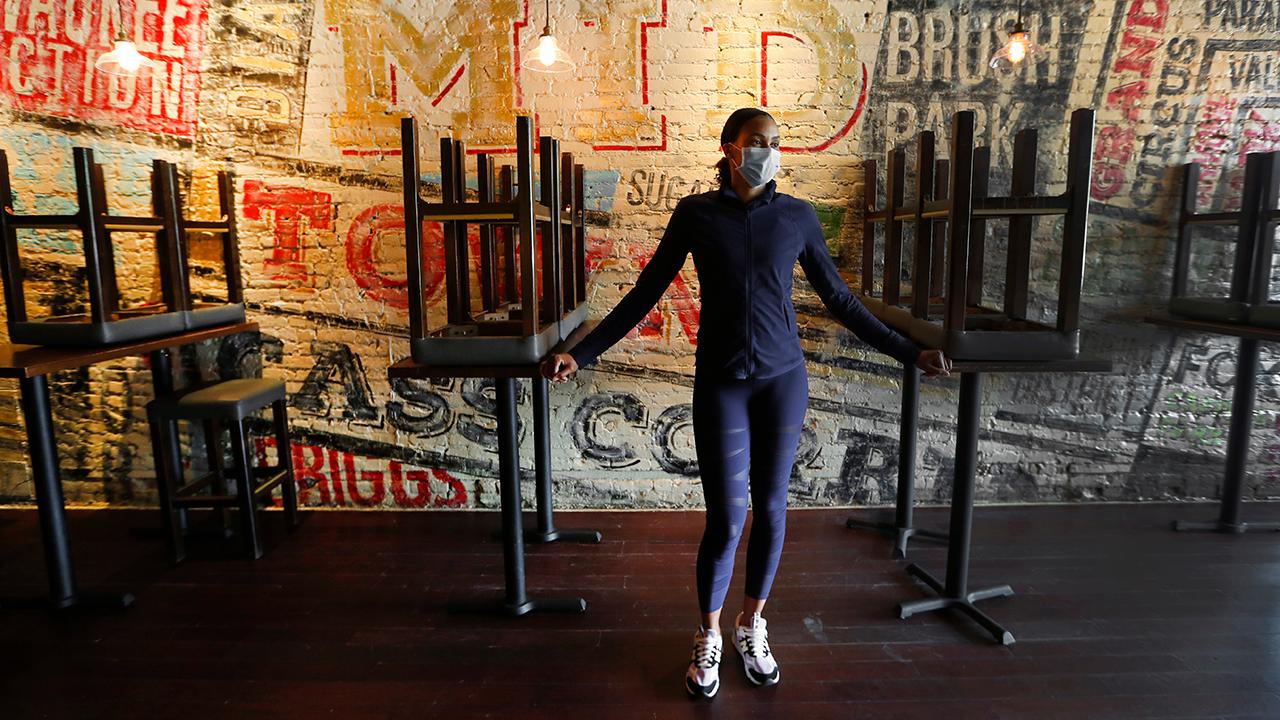Black business owners hit hardest by coronavirus pandemic
From February to April, the number of working black business owners plummeted 41%
The coronavirus pandemic and related economic lockdown have ravaged the small business community, but early evidence indicates the crisis has disproportionately hurt black business owners.
The number of businesses owned by African Americans plunged more than 40 percent in April, at the height of the virus-induced shutdown, according to a paper published by Robert Fairlie, an economics professor at the University of California in Santa Cruz.
During the two-month period from February to April, the number of working black business owners plummeted 41 percent, tumbling from 1.1 million to 640,000. Nationally, the number of active business owners declined by 22 percent, or 3.3 million.
BLACK BUSINESSES DECIMATED BY VIRUS OUTBREAK, STUDY FINDS
The disparities were apparent between white business owners and minority business owners. White-owned businesses declined by 17 percent, or 1.8 million, the findings show.
“The negative early-stage impacts on minority- and immigrant-owned businesses, if prolonged, may be problematic for broader racial inequality because of the importance of minority businesses for local job creation (disproportionately for other minorities), economic advancement, and longer-term wealth inequality,” Fairlie wrote.
Many small businesses are struggling to stay afloat during the worst economic crisis since the Great Depression because they often lack the access to loans and capital that bigger businesses have. But at the end of March, Congress tried to address that issue, creating the $670 billion Paycheck Protection Program.
Under the aid program, businesses with fewer than 500 workers could receive loans of up to $10 million. If at least 60 percent of the money goes toward maintaining payroll, the federal government will forgive it, essentially turning the money into a grant.
WHICH US COMPANIES ARE OBSERVING JUNETEENTH AS A WORK HOLIDAY THIS YEAR?
But black-owned businesses appear to be benefiting less from the small-business rescue program. Only 12 percent of black and Hispanic business owners who applied for a PPP loan received it between April 30 and May 12, according to a survey from Color of Change and UnidosUS, two groups that advocate for racial equality. That's despite 50 percent of those business owners requesting less than $20,000 in aid. There remains close to $130 billion left in the fund.
In contrast, half of all small businesses reported receiving money from the PPP, according to a recent census survey.
"The Small Business Administration’s Paycheck Protection Program is a driver of racial inequality, rather than a means to provide desperately needed relief for the small businesses at the heart of Black and Brown communities,” Rashad Robinson, the president of Color of Change, said in a statement.
WHAT HAPPENS TO YOUR UNEMPLOYMENT BENEFITS IF YOU REFUSE TO GO BACK TO WORK?
At the end of May, the Trump administration announced it would carve out at least $10 billion from the PPP for private institutions that serve low-income communities. The money will be exclusively loaned by Community Development Financial Institutions, a move intended to ensure that the aid reaches traditionally underserved communities.
Minority-owned businesses already face additional challenges when compared to their white-owned counterparts. A 2019 report released by a regional Federal Reserve bank found that 46 percent of black-owned businesses were profitable at the end of 2017, compared with 55 percent of white-owned firms. And last year, 78 percent of black-owned businesses reported financial struggles, compared to 62 percent of white-owned businesses.
Another report, this one from the Federal Reserve Bank of Atlanta, found that small black-owned firms have more trouble securing loans and tend to have less cash on hand. Black businesses applied for smaller loans, on average, and were twice as likely to be rejected by lenders compared to white-owned businesses.
GET FOX BUSINESS ON THE GO BY CLICKING HERE
The uneven impact of the lockdown on black-owned businesses is compounded by the fact that minority communities are being crushed by the outbreak of the virus. African Americans are at a higher risk of contracting COVID-19, and are more likely to die from the virus, compared to white people.
Demonstrations across the country following the killing of George Floyd, a 46-year-old black man who died after a white police office kneeled on his neck for more than eight minutes, have sought to bring light to the racial inequalities that continue to persist within the U.S.




















